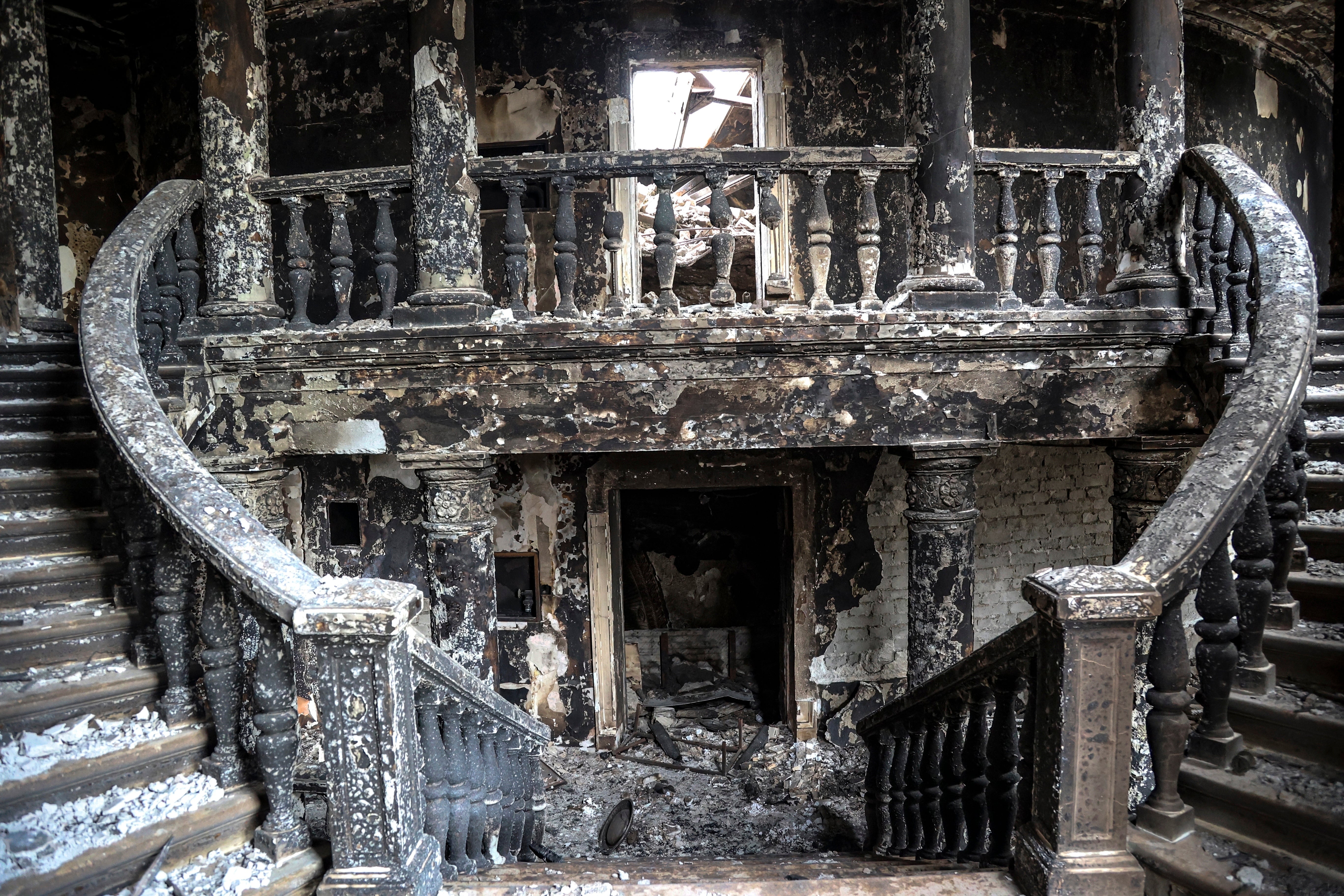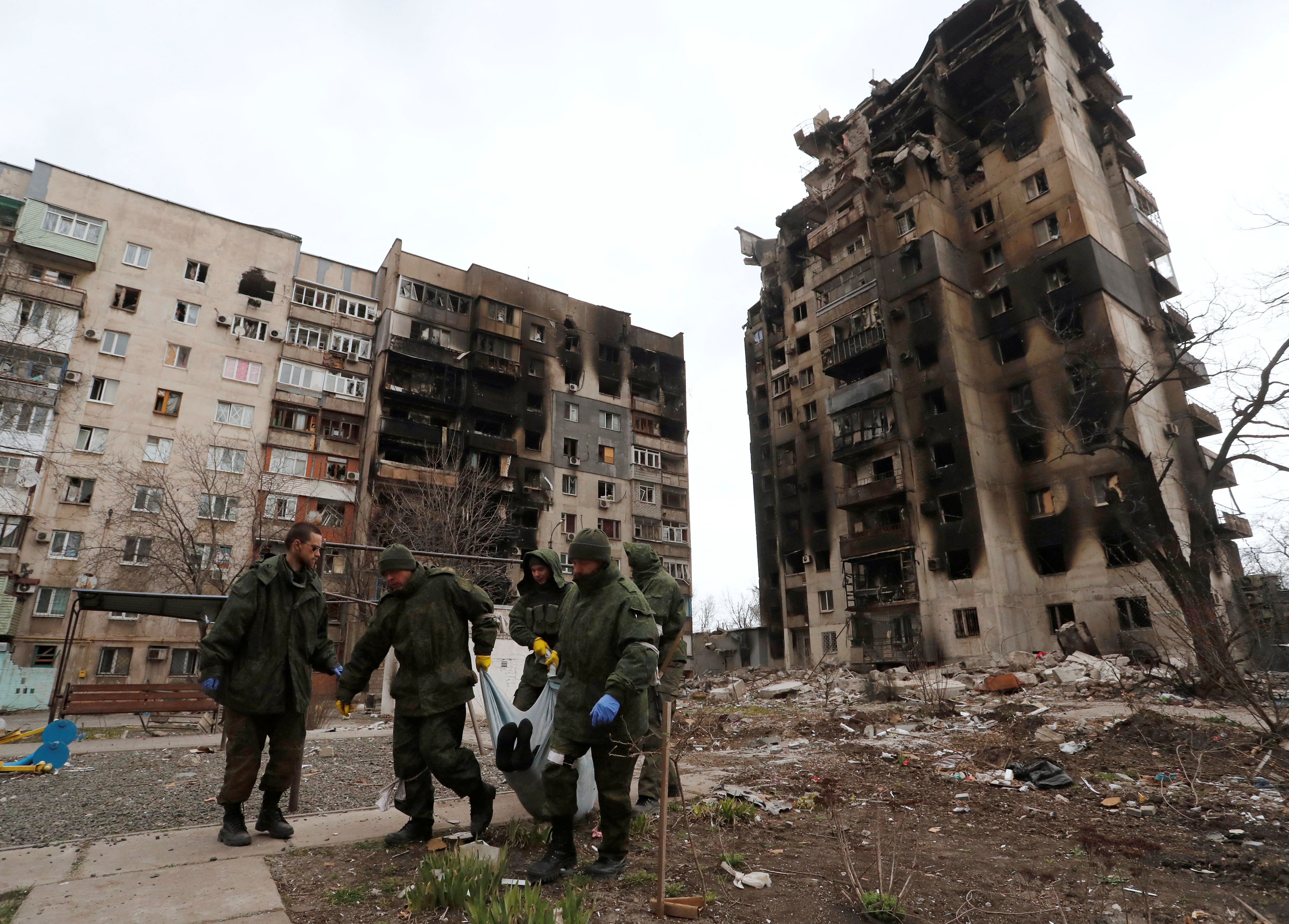No light, communication, medicine, heat or water in Mariupol as Russian assault continues, Britain says
‘Russian forces have prevented humanitarian access, likely to pressure defenders to surrender’
Your support helps us to tell the story
From reproductive rights to climate change to Big Tech, The Independent is on the ground when the story is developing. Whether it's investigating the financials of Elon Musk's pro-Trump PAC or producing our latest documentary, 'The A Word', which shines a light on the American women fighting for reproductive rights, we know how important it is to parse out the facts from the messaging.
At such a critical moment in US history, we need reporters on the ground. Your donation allows us to keep sending journalists to speak to both sides of the story.
The Independent is trusted by Americans across the entire political spectrum. And unlike many other quality news outlets, we choose not to lock Americans out of our reporting and analysis with paywalls. We believe quality journalism should be available to everyone, paid for by those who can afford it.
Your support makes all the difference.The condition of thousands of residents of the besieged city of Mariupol in Ukraine is “worsening” as they are left without electricity, water, medicine or communication because of continuous and unabated bombardment from Russia, the UK’s military intelligence has claimed in its latest update.
“The humanitarian situation in the city is worsening,” the UK’s defence ministry said on Wednesday.
“Most of the 160,000 remaining residents have no light, communication, medicine, heat or water. Russian forces have prevented humanitarian access, likely to pressure defenders to surrender,” it added.
The statement comes after Ukrainian president Volodymyr Zelensky accused Russia of blocking humanitarian aid to Mariupol and said Moscow was buying time to “clean up” evidence of human-rights abuses.
He cited data by the Security Service of Ukraine (SBU), the country’s security agency, that said Russian forces “plan to gather bodies of Mariupol residents killed by the Russians themselves in one place and present them as mass victims of Ukrainian troops”.
He made the remarks during an interview with Turkey’s Haberturk television.
The port city of Mariupol, a strategically important port on the Sea of Azov that is a part of the Black Sea, has been encircled by Russian forces since the beginning of March.

The city has been pummelled by endless bombardment from artillery, rockets and missiles as Ukrainian forces said they have been fending off attacks on the city for more than 40 days.
More than 90 per cent of the city has been reportedly damaged and access to electricity, heating, freshwater, food and medical supplies has been cut off.
Meanwhile, British health secretary Sajid Javid said the world must “act to stop mass murder” in Ukraine, as he compared rising civilian killings to the 1995 genocide in Bosnia.

“This is mass murder on an unprecedented scale in Europe. We haven’t seen the likes of this I think since 1995,” he told the BBC.
“I don’t want to be commemorating another genocide in Europe years from now. We have the power, the world has the power to stop this, and it must act,” Mr Javid said.
In what is widely believed to be Europe’s worst humanitarian atrocity since the Second World War, Bosnian Serb forces overran a UN “safe zone” in Srebrenica and massacred Muslim Bosniaks in July 1995.
The Independent has a proud history of campaigning for the rights of the most vulnerable, and we first ran our Refugees Welcome campaign during the war in Syria in 2015. Now, as we renew our campaign and launch this petition in the wake of the unfolding Ukrainian crisis, we are calling on the government to go further and faster to ensure help is delivered. To find out more about our Refugees Welcome campaign, click here.
To sign the petition click here. If you would like to donate then please click here for our GoFundMe page.

Join our commenting forum
Join thought-provoking conversations, follow other Independent readers and see their replies
Comments